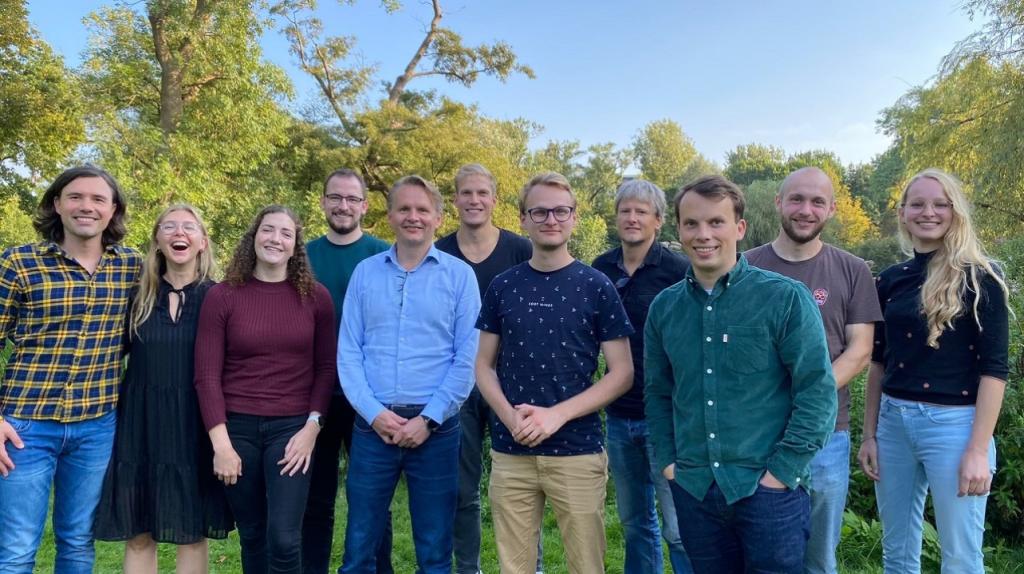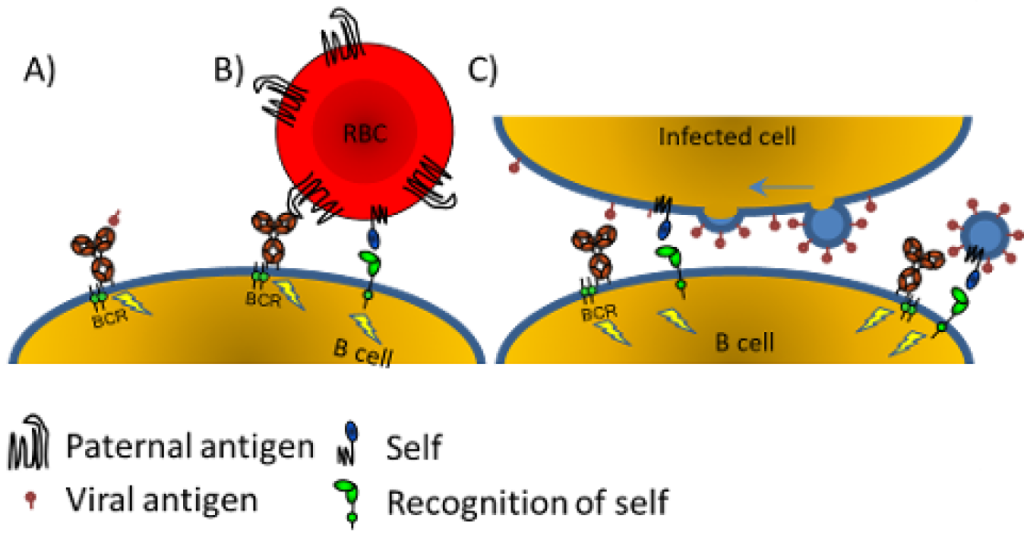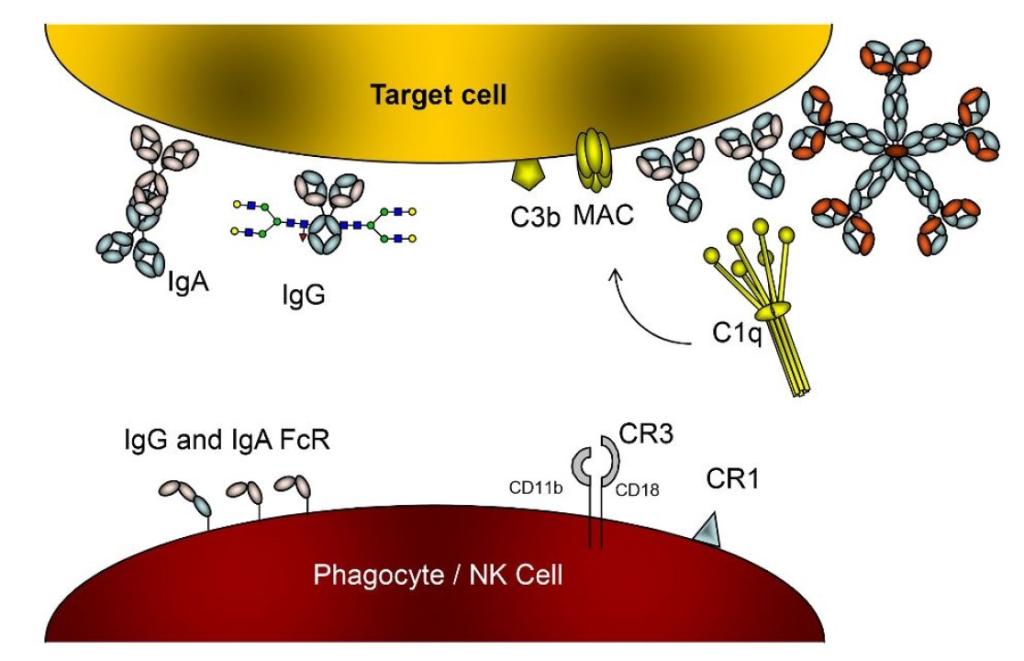Immunoglobulin Research
Our interests resides in B cells to phagocytes, from vaccination or immunization to cellular immune responses. In particular, our research emphasizes antibody biology, cloning and engineering, including research on antibody interactions with immune molecules (FcRn, FcγR, and complement). We are particularly interested in how immunoglobulins affect modulation of immune responses, particularly in the context of antibody-mediated blood cell destruction in allo- and autoimmune diseases. To this aim we have pioneered analysis and engineering of antigen specific immunoglobulin Fc-glycosylation, to understand the role of IgG-glycosylation in these and other diseases.

Research lines
Our research group (September 2021):

Humoral Immune responses to blood cells and IgG Glycosylation
In most immune-mediated blood cell diseases and in all fetal/neonatal alloimmune cytopenias the destruction of blood cells is mediated by antibodies. We are therefore investigating both 1) the B cells, 2) the characteristics of these antibodies in terms of myeloid and NK-cell receptors (FcγR), and complement activation, and 3) the interaction of antibodies with the FcRn, the receptor responsible for placental transport. In the last few years, our focus has shifted towards glycosylation of IgG after our recent findings showing that these can be fundamentally different from total IgG in plasma. Furthermore, these changes seem to explain a large part of pathologies in alloimmune mediated diseases. By analyzing the Fc-glycosylation of the IgG1 alloantibodies formed during pregnancy against antigens of the fetus (Human Platelet Antigen-1 and Rhesus D antigen (RhD))) using mass spectrometry in collaboration with Prof. Manfred Wuhrer at Leiden University, we found markedly decreased levels of core-fucosylation and increased levels of galactosylation and sialylation. Because IgG glycosylation, in particular IgG Fc-core-fucosylation influences binding to FcγR, this translates into altered effector function that can have a profound effect on disease severity and prognosis. In addition, our work has shown that galactosylation is also controlled by B cells in antigen-specific manner and influences complement activation by affecting the hexamerization potential of antibodies. These glycan changes and their actual effects on the immune function has been profoundly difficult to study. We therefor work hard to introduce these changes in model antibodies by glycoengineering, and study the effects in promoting cellular pathologies – but also how these can be put to use for Tumor cell killing.
Antiviral immunity and COVID-19
Our research on antibody glycosylation in cytopenias above, characterized by afucosylated IgG, has led to the question on the origin of such responses. This work has uncovered that this type is extremely uncommon, exemplified by the fact that IgG in the human body is almost fully fucosylated (~94%). However, we have discovered that immune responses to non-enveloped viruses have a strong tendency to induce such immune responses. We are working along the hypothesis that afucosylated immune responses are particularly honed to battle enveloped viruses. Our recent work showed that the tendency to make afucosylated even stronger in natural immunity to Plasmodium falciparum-infected red blood cells (the causative agent of malaria). This seems to suggest that immune responses to Blood cells after blood transfusion and in in pregnancies, mimics how our immune system sees enveloped virus infected cells and infected RBC in malaria. Furthermore, this evokes a strong myeloid and NK-cell responses that in essence can be effective and may be crucial to mount a real protective effects to prevent malaria. Current protein-based vaccines do not do this, and lead to 100% fucosylation, perhaps explaining why most vaccine efforts in malaria have failed. At at the same time this can be excessive, leading to enhanced morbidity and mortality in diseases such as COVID-19 due to overactivation of the immune system through FcγRIIIa.

Neonatal Fc receptor biology
Antibodies in blood are almost exclusively of the IgG type. IgG is also abundantly found at mucosal surfaces and is the only antibody type actively transported from mother to child before birth, providing the newborn with protective immunity for the first few months after birth. IgG also has a uniquely long half life of approximately three weeks, compared to only one week for most other isotypes. This long half-life, transport to mucosa and to the newborn, are all properties mediated by the neonatal Fc receptor (FcRn), an intracellular receptor found in vacuoles within cells. Some current therapies involving Intravenous Immunoglobulin therapies (IVIg) or more recent approaches targeting this receptor directly, often saturate this receptor or block its binding to IgG. Both approaches effectively reduce the half life of IgG which can be beneficial in auto- and allo-immune mediated diseases. We have a long history studying the biology of FcRn, improving our understanding how this receptor provides prolonged half-life and transport of some subclasses above others, how new antibody-mediated drugs target FcRn, and its non-classical function of FcRn in immune cells.

Transition of Scientific discoveries to diagnostic practices
Our recent finding on antibody-mediated breakdown of cells has potential applications for diagnostic purposes. Glycosylation of antibodies is one particular feature which may be very informative to identify patients at risk. However glycan analysis is extremely complex, particularly on an antigen-specific level. We are currently working on simplifying this process using standard laboratory equipment found in current diagnostic laboratories.
Key publications
- Larsen MD, Lopez-Perez M, Dickson EK, Ampomah P, Ndam NT, Nouta J, Koeleman CAM, Hipgrave Ederveen AL, Mordmüller B, Salanti A, Nielsen MA, Massougbodji A, van der Schoot CE, Ofori MF, Wuhrer M, Hviid L & Vidarsson G: Afucosylated Plasmodium falciparum-specific IgG is induced by infection but not by subunit vaccination. Nature Communications 2021; 12:5838.
- Van Osch TLJ, Nouta J, Derksen NIL, van Mierlo G, van der Schoot CE, Wuhrer M, Rispens T, Vidarsson G. Fc Galactosylation Promotes Hexamerization of Human IgG1, Leading to Enhanced Classical Complement Activation. J Immunol. 2021;207(6):1545-1554.
- Larsen MD, de Graaf EL, Sonneveld ME, Plomp HR, Nouta J, Hoepel W, Chen HJ, Linty F, Visser R, Brinkhaus M, Šuštić T, de Taeye SW, Bentlage AEH, Toivonen S, Koeleman CAM, Sainio S, Kootstra NA, Brouwer PJM, Geyer CE, Derksen NIL, Wolbink G, de Winther M, Sanders RW, van Gils MJ, de Bruin S, Vlaar APJ; Amsterdam UMC COVID-19 biobank study group, Rispens T, den Dunnen J, Zaaijer HL, Wuhrer M, Ellen van der Schoot C, Vidarsson G. Afucosylated IgG characterizes enveloped viral responses and correlates with COVID-19 severity. Science. 2021;371(6532):eabc8378.
- Brinkhaus M, Pannecoucke E, van der Kooi EJ, Bentlage AEH, Derksen NIL, Andries J, Balbino B, Sips M, Ulrichts P, Verheesen P, de Haard H, Rispens T, Savvides SN, Vidarsson G. The Fab region of IgG impairs the internalization pathway of FcRn upon Fc engagement. Nature Communications 2022;13(1):6073. doi: 10.1038/s41467-022-33764-1.
- Van Coillie J, Pongracz T, Rahmöller J, Chen HJ, Geyer CE, van Vught LA, Buhre JS, Šuštić T, van Osch TLJ, Steenhuis M, Hoepel W, Wang W, Lixenfeld AS, Nouta J, Keijzer S, Linty F, Visser R, Larsen MD, Martin EL, Künsting I, Lehrian S, von Kopylow V, Kern C, Lunding HB, de Winther M, van Mourik N, Rispens T, Graf T, Slim MA, Minnaar RP, Bomers MK, Sikkens JJ, Vlaar APJ, van der Schoot CE, den Dunnen J, Wuhrer M, Ehlers M, Vidarsson G; Fatebenefratelli-Sacco Infectious Diseases Physicians group; UMC COVID-19 S3/HCW study group. The BNT162b2 mRNA SARS-CoV-2 vaccine induces transient afucosylated IgG1 in naive but not in antigen-experienced vaccinees. EBioMedicine. 2022 16;87:104408. d
- De Taeye SW, Bentlage AEH, Mebius MM, Meesters JI, Lissenberg-Thunnissen S, Falck D, Sénard T, Salehi N, Wuhrer M, Schuurman J, Labrijn AF, Rispens T, Vidarsson G. FcγR Binding and ADCC Activity of Human IgG Allotypes. Front Immunol. 2020 May 6;11:740.
- Šuštić T, Van Coillie J, Larsen MD, Derksen NIL, Szittner Z, Nouta J, Wang W, Damelang T, Rebergen I, Linty F, Visser R, Mok JY, Geerdes DM, van Esch WJE, de Taeye SW, van Gils MJ, van de Watering L, van der Schoot CE, Wuhrer M, Rispens T, Vidarsson G. Immunoassay for quantification of antigen-specific IgG fucosylation. EBioMedicine. 2022;81:104109.
Funding
- argenx
- Dutch Medical Research Council (ZonMW)
- LSBR (Landsteiner Foundation for Blood Transfusion Research)
- Genmab
- PPOP PPOD PPOC internal funding (in competition), various grants

Janita (J.) Oosterhoff

Arthur (A.) Bentlage

Remco (R.) Visser
